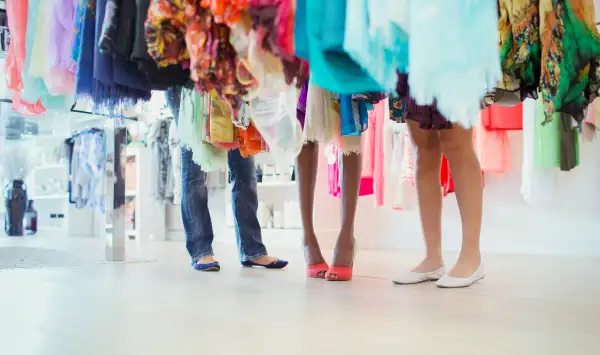The New Rule for Buying Clothes in the Smartest, Least Wasteful Way Possible

The brilliantly simple food-consumption guidelines recommended by Michael Pollan make it easy for people to eat healthfully and responsibly. The rules, stated plainly in Pollan's book and documentary In Defense of Food, go like so: "Eat food. Not too much. Mostly plants.”
Taking a cue from Pollan, the Quartz fashion writer Marc Bain has suggested a similar set of rules for your wardrobe: "Buy better clothes. Buy less of them. Wear them more."
In the same way that Pollan's guidelines are a response to fast food restaurants and the heavily processed food industrial complex, Bain's recommendations go against the grain of the fast fashion trend, in which retailers like H&M, Forever 21, and Primark encourage shoppers to buy cheap items frequently and discard them as soon as the next trend arises.
In their own ways, fast food and fast fashion are both bad for you, the environment, and your wallet. So while Bain's push for better quality clothing will cost you more at the time of purchase, the concept can yield great personal and societal benefits in the long run. He suggests shoppers consider questions such as these before buying any article of clothing:
How much will I wear it? A $100 pair of jeans is a better value if you'll wear them 50 times, compared to a $50 pair you'll probably only wear a few times.
How much do I already own? Odds are, your closets are packed with clothing you haven't worn in years.
How long will it last? There's a financial and environmental toll for items that are produced on the cheap and soon wind up in landfills.
Read Next: 10 Bizarre but Possibly Brilliant Money Tips You Must Check Out
The point isn't that it's bad to buy clothing. But if you truly love fashion, or food, for that matter, you should really think about what you're buying and putting on (or inside) your body. The idea is to practice mindful consumption--with awareness and a conscience, rather than consume thoughtlessly, impulsively, and wastefully.
It makes sense no matter if you're talking about a burger or a new pair of boots.
